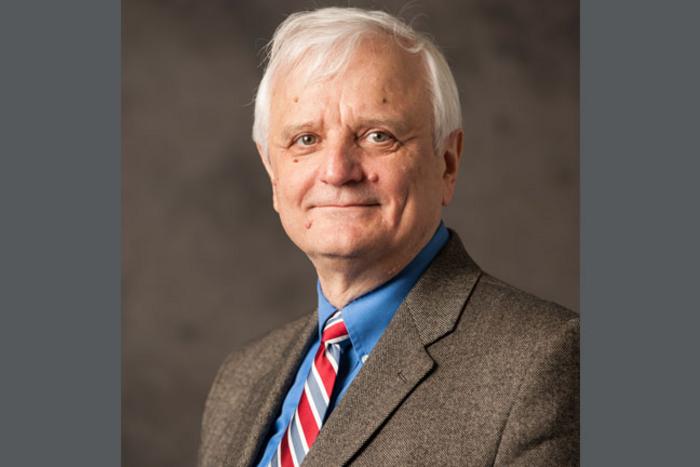We are all aware of the dangers of pollution to our air, water, and earth. In a letter recently published in Nature Human Behavior, scientists are advocating for the recognition and mitigation of another type of environmental pollution that poses equivalent personal and societal dangers: information overload.

Credit: Rensselaer Polytechnic Institute
We are all aware of the dangers of pollution to our air, water, and earth. In a letter recently published in Nature Human Behavior, scientists are advocating for the recognition and mitigation of another type of environmental pollution that poses equivalent personal and societal dangers: information overload.
With the internet at our fingertips with smartphones, we are exposed to an unprecedented amount of data far beyond our ability to process. The result is an inability to evaluate information and make decisions. Further, it can lead us to limit our social activities, feel unsatisfied with our jobs, as well as unmotivated, and generally negative. Economists estimate that it all comes at a global cost of about $1 trillion. On top of the emotional and cognitive effects, contextual and environmental considerations may add to the personal and economic costs.
The idea to explore information overload was incubated in a meeting of an international group of scientists two years ago, all of whom were supported by an E.U. grant for international collaboration. The E.U. team selected partners abroad including, for the third time, Rensselaer Polytechnic Institute’s Network Science and Technology Center (NeST), led by Boleslaw Szymanski, Ph.D., professor of computer science, in the United States.
The researchers compare information overload to other historical shifts in society: open publishing brought about the need to filter out low-quality research from the vast number of accessible publications, the Industrial Revolution gave rise to air pollution, and environmental activists have helped usher in legal and economic changes to help curb pollution. Similarly, so-called “information pollution” or “data smog” must be addressed.
Through the lens of computer science, there are at least three levels of information overload: “neural and cognitive mechanisms on the individual level… information and decisions at the group level… (and) societal level interactions among individuals, groups, and information providers.” These levels do not operate independently, so the flow of information may be treated as a multilevel network with nodes, which may give rise to an abrupt change. The researchers cite teamwork as an example: one team member’s information overload may cause the group’s performance to be hindered. It is a complex problem.
“We are calling for action in science, education, and legislation,” said Szymanski. “We need further interdisciplinary research on information overload. Information ecology must be taught in school. We also need to start the conversation on legislative possibilities, akin to the Clean Air Act in the U.K. decades ago.”
“Information overload can have severe implications,” said Curt Breneman, Ph.D., dean of Rensselaer’s School of Science. “It begins by eroding our emotional health, job performance, and satisfaction, subsequently influencing the actions of groups and ultimately, entire societies. I hope that Dr. Szymanski’s letter, written with colleagues from across the world, will raise public awareness of the problem and enable solutions to be studied and implemented.”
Szymanski was joined in authoring the letter by Janusz A. Hołyst of Warsaw University of Technology, the principal investigator of the E.U. grant; Philipp Mayr of the Leibniz Institute for the Social Sciences; Michael Thelwall of University of Sheffield; Ingo Frommholz of University of Wolverhampton; Shlomo Havlin and Alon Sela of Bar-Ilan University; Yoed N. Kenett of Technion – Israel Institute of Technology; Denis Helic of Modul University Vienna; Aljoša Rehar and Sebastijan R. Maček of Slovenian Press Agency; Przemysław Kazienko and Tomasz Kajdanowicz of Wroclaw University of Science and Technology; Przemysław Biecek of Warsaw University of and University of Warsaw; and Julian Sienkiewicz of Warsaw University of Technology.
About Rensselaer Polytechnic Institute:
Founded in 1824, Rensselaer Polytechnic Institute is America’s first technological research university. Rensselaer encompasses five schools, over 30 research centers, more than 140 academic programs including 25 new programs, and a dynamic community made up of over 6,800 students and 110,000 living alumni. Rensselaer faculty and alumni include upwards of 155 National Academy members, six members of the National Inventors Hall of Fame, six National Medal of Technology winners, six National Medal of Science winners, and a Nobel Prize winner in Physics. With nearly 200 years of experience advancing scientific and technological knowledge, Rensselaer remains focused on addressing global challenges with a spirit of ingenuity and collaboration. To learn more, please visit www.rpi.edu.
Contact:
Katie Malatino
Senior Communications Specialist
[email protected]
838-240-5691
For general inquiries: [email protected]
Visit the Rensselaer research and discovery blog: https://everydaymatters.rpi.edu/
Follow us on Twitter: @RPINews
###
Journal
Nature Human Behaviour
Article Title
Protect our environment from information overload
Article Publication Date
7-Feb-2024




